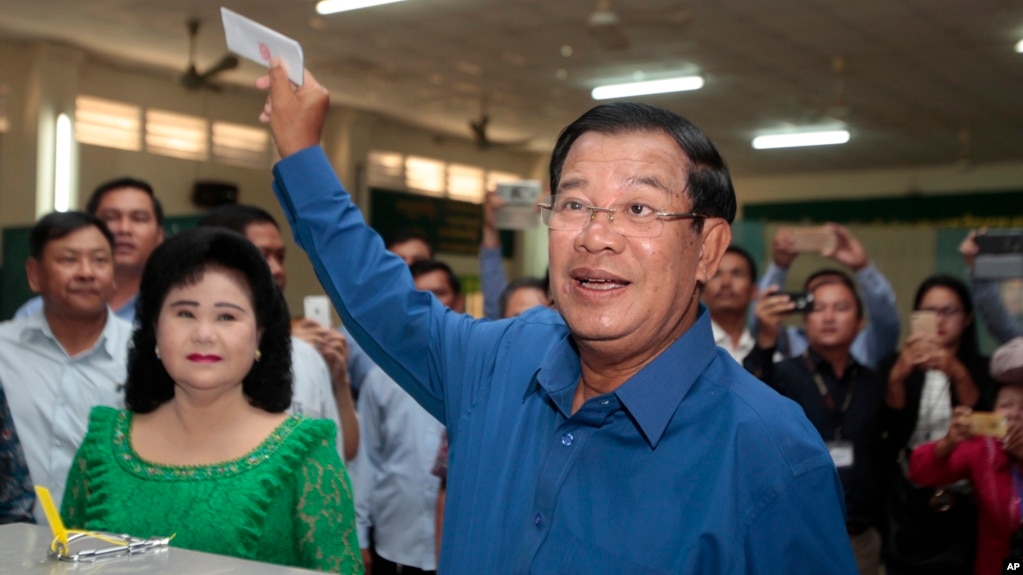09 February 2018
Hul Reaksmey
VOA Khmer

Cambodian Prime Minister Hun Sen of the Cambodian People's Party shows off his ballot paper next to his wife, Bun Rany, foreground left, before voting in local elections at Takhmau polling station in Kandal province, southeast of Phnom Penh, Cambodia, Sunday, June 4, 2017. (AP Photo/Heng Sinith)
Voting is due to take place on February 25 and the NEC has estimated the cost of the vote to be about $2 million.
PHNOM PENH —
The National Election Committee (NEC) this week called on private media outlets to sell broadcast hours to political parties ahead of the Senate election and said that large areas of central Phnom Penh will be closed during the vote and demonstrations are banned.
The campaign period of the election will last two weeks from Sunday. Observers say the absence of candidates from the dissolved Cambodian National Rescue Party has cast a long shadow over the election, raising questions over the legitimacy of the vote.
The NEC said it would also organize round-table events proposed by candidates from the various parties taking part.
Sam Kuntheamy, executive director of local election watchdog Nicfec, said it was unlikely that radio and television station owners would abide by the rules and offer equal airtime to all parties.
He added that road closures were not related to preventing traffic congestion, as the NEC stated, but rather to minimize the likelihood of protests taking place.
Meth Meas Pheakdey, City Hall spokesman, defended the measures the city was taking. “It’s not about restrictions or prohibitions on the election campaign,” he said. “We offered time slots [for demonstrations] although it is banned in some places.”
NEC representatives Hang Puthea and Dim Sovannarom could not be reached for comment.
The ruling Cambodian People’s Party, led by Prime Minister Hun Sen; the royalist Funcinpec party; and the Khmer National United Party, founded by Nhek Bun Chhay, will all field candidates in the election.
Voting is due to take place on February 25 and the NEC has estimated the cost of the vote to be about $2 million.
Meas Ny, a political analyst, said the absence of the country’s former main opposition party, which was dissolved by the Supreme Court in November, would raise questions over the election’s legitimacy.
“Everything has been changed to fit within amended laws. Therefore, we can’t say the election is not legitimate so far,” he said, adding that more than 3 million opposition voters were effectively disenfranchised by their party’s dissolution.

No comments:
Post a Comment